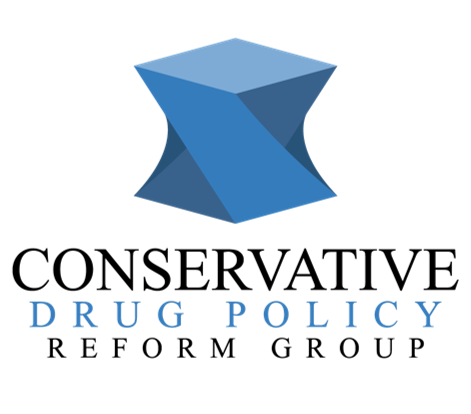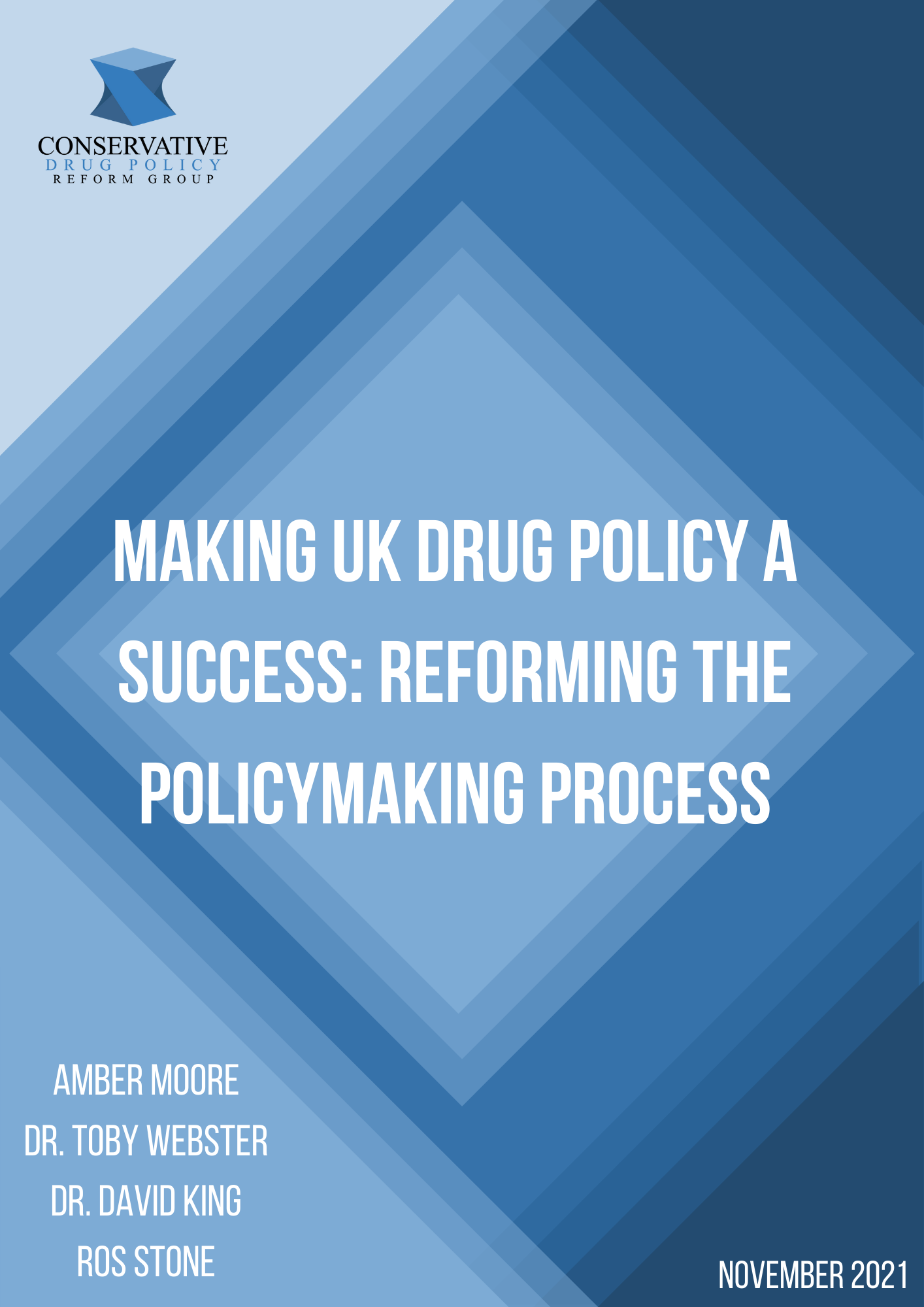Bad practice in drug policymaking is the hidden driver of the UK’s current crisis, finds the CDPRG’s new report — with polling data showing the majority of MPs from all parties believe it needs an evidence-based update
Three-quarters or more MPs (even within the Conservative party) believe it is time to update UK drug laws based on evidence, new polling data commissioned by the Conservative Drug Policy Reform Group (CDPRG) shows.
The political climate is overwhelmingly ready for drug policy reform as demonstrated by this survey of 105 MPs which was commissioned by the independent think tank the CDPRG in June-July 2021.
The data reveals that increasingly evidence-based drug policies would be welcomed by the majority of MPs. This includes the majority of Conservative MPs polled, the Parliamentary demographic traditionally associated with the greatest resistance to innovation in this area:
- 72% agree the process of making policy about controlled drugs should make more use of evidence and research;
- 75% share the sentiment that policy about controlled drugs is such a controversial issue, it can be difficult to have an objective debate about the best solutions; and
- 85% (and 90% of all MPs) agree that improved cross-departmental coordination would better help to tackle the health crime and social problems associated with controlled drugs.
The full polling data incontrovertibly dispels the myth that there is predominant resistance among MPs to change in this area, which has historically been a barrier to drug policy reform. (See “4. Polling data infographic” in the Press Pack for full polling data highlights.)
On Friday 26 November, these results, which are unpublished elsewhere, were sent by Crispin Blunt MP as part of an exclusive briefing to the Prime Minister and six Secretaries of State. This came ahead of the publication of the first part of the new Government drugs strategy, on 06 December 2021.
In a letter to the Prime Minister, Crispin Blunt, who is the unremunerated chairman of the Conservative Drug Policy Reform Group, said:
“Drug policy across the world is shifting, and following the commission of Dame Carol Black’s independent review along with the upcoming drugs strategy, the time is right for us to grasp this complex area once and for all and reap the enormous opportunities that getting this right will bring to the UK.”
Unless the way drug policy is made changes, it will not be possible to devise drug policies with better outcomes. Drug policy outcomes have worsened consistently following previous drug strategies, the report points out.
Blunt told Ministers:
“Class A drug use has increased significantly over the past two decades; drug-related homicides accounted for a 20% increase in total homicides between 2013/14 and 2017/18; and the UK was the overdose capital of Europe for a second year in a row in 2020.”
Calling for the structural reform of the UK’s drug policymaking system, he said:
“It would be foolish to rely on existing Governmental drug policymaking machinery, given this track record, to produce strategies of the calibre required to buck these wretched trends.”
The report makes 23 recommendations for improving how UK drug policy is made. These relate to understanding the problem, setting goals, policy design, costing, local commissioning, outcome monitoring, evaluation, accountability and overall policy improvement. To identify better ways forward for drug policymaking in the UK, the CDPRG’s consultation process included individual expert interviews and two roundtables, on cross-cutting policies and building capacity for research and evaluation.
The report aims to support the realisation of the recommendations for improving drug treatment services and local coordination made by Dame Carol Black in part 2 of her independent review.
Addressing the national drugs crisis will be instrumental to achieving other key government aims, like the levelling up agenda, asserts Black, who is a key consultant on the forthcoming drugs strategy.
Supporting statements
“Historically, governments have been nervous of drug policy change. But things are changing and it is now a misperception that both the general public and Members of Parliament are unready for change. Anxiety about the risk of change helped reinforce an innovation-shy drugs policy that has served a maintenance of the status quo that is increasingly deadly. CDPRG, which exists in order to make evidence available to parliamentarians and bridge the gap between research and science and all policy makers necessary evidence has now researched parliamentary opinion and the results reveal that the majority of MPs, in line with the British public, recognise that current drug policy isn’t working and are ready for drug policy reform.” (Crispin Blunt MP, Chairman of the Conservative Drug Policy Reform Group)
“In the nine years since the UK Drug Policy Commission (UKDPC) established the characteristics of good governance for drug policy, little has changed. However, with a new national drug strategy in the works, with recognition from the very top that things must change, and with new momentum behind solving the coordination problems plaguing previous attempts, we are optimistic. This Government knows it can do better, and we have updated the lessons of the past so that we can all learn from them.” (Dr. Toby Webster, Director of Research)
“The issues we have identified with the UK drug policymaking machine are not new. We stand on the shoulders of giants in calling out the same methodological flaws that have made the UK’s drugs landscape a train wreck over successive decades. The better ways forward we recommend for UK drug policy as a result of our roundtables are also not technically new, they derive from successful policymaking in other areas. What is new is the strong political support for a fresh approach, with 90% of MPs endorsing the increased collaboration between different Government departments that we recommend.” (Amber Moore, Senior Researcher)
‘This is a thoughtful and powerful document. It makes great sense. I just hope it gets the attention of government that it deserves’ (Prof. Mike Barnes, Chair of the Medical Cannabis Clinicians Society)
Information for press
To arrange interviews with Crispin Blunt, the report’s authors and/or to ask any questions about this work, get in touch with our Outreach Manager Ros Stone: [email protected].
About Making UK drug policy a success: reforming the policymaking process
Political release: 26 November 2021
Public release: 17 December 2021
Foreword: Crispin Blunt MP
Authors: Amber Moore, Dr. Toby Webster, Dr. Dave King, Rosalind Stone
Junior Researcher: Iram Salam
Design: Timmy Davis
Polling of MPs: Savanta
Roundtables: “Delivering Cross-Cutting Policies,” with the Institute for Government in July 2021 and “Building Evidence: Data Systems, Research Strategy and Evaluation,” with DrugScience in September 2021
Access the press pack
Contents:
1) PRESS RELEASE | Bad practice in drug policymaking is the hidden driver of the UK’s current crisis, finds the CDPRG’s new report — with polling data showing the majority of MPs from all parties believe it needs
an evidence-based update
2) [The report in short] - 1 page PDF key findings summary
3) [Summary document] Making UK Drug Policy a Success: Executive Summary and Recommendations
4) [Polling data infographic] MP thoughts on drug policy, polling data highlights
5) [Letter to the Prime Minister] from Crispin Blunt MP, accompanying the briefing sent on 26 November 2021
6) [The report in full, including foreword by Crispin Blunt] Making UK Drug Policy a Success: Reforming the Policymaking Process (public release: 17 December 2021)


